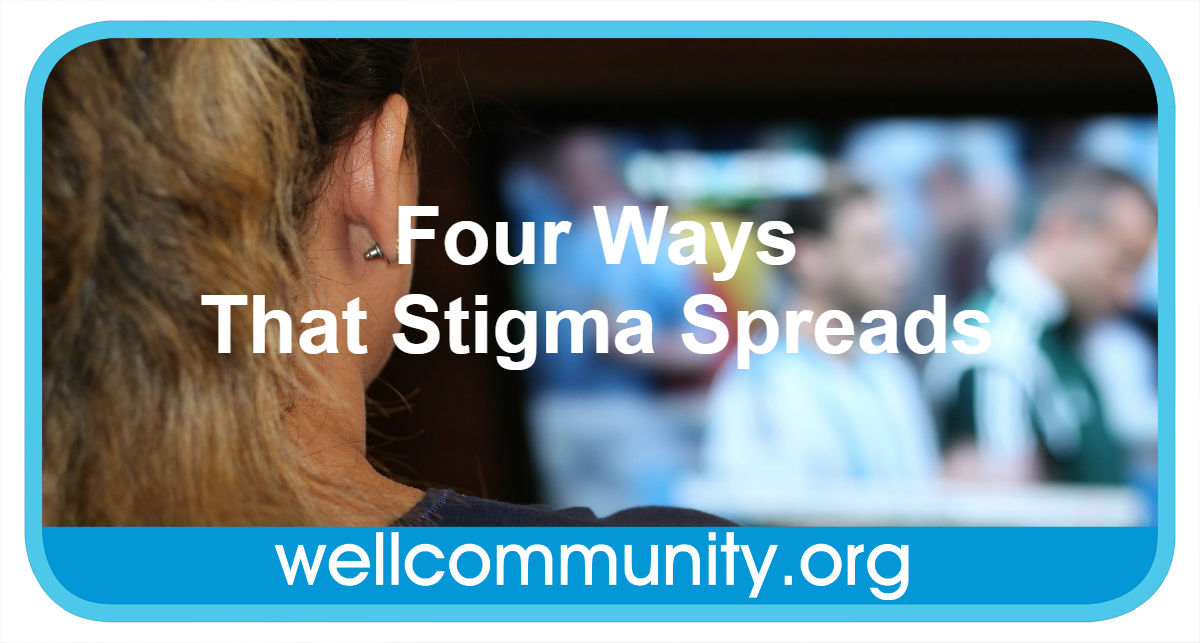 Stigma makes living with a mental health difficulty even more challenging. It reinforces negative attitudes about mental illnesses and encourages prejudice against those who struggle with them. The National Alliance for Mental Illness puts it this way: “Stigma reflects prejudice, dehumanizes people with mental illness, trivializes their legitimate concerns, and is a significant barrier to effective delivery of mental health services.”[i]
Stigma makes living with a mental health difficulty even more challenging. It reinforces negative attitudes about mental illnesses and encourages prejudice against those who struggle with them. The National Alliance for Mental Illness puts it this way: “Stigma reflects prejudice, dehumanizes people with mental illness, trivializes their legitimate concerns, and is a significant barrier to effective delivery of mental health services.”[i]
But, what causes this stigma to thrive and spread? Several factors perpetuate stigma, both in casual conversation and in the media.
Careless Comments
Words like “nuts,” “crazy” and “psycho” are not only hurtful, they reinforce harmful stereotypes. In addition, comments like “I’m so OCD” or “the weather has been really bipolar” reduce mental illnesses to synonyms for words like “meticulous” or “erratic.” In turn, phrases like these minimize the struggles of those who live with these conditions and make it more difficult to see these people as more than their illnesses.
The News
On television, online, in newspapers and in other forms of news, those living with mental illnesses are often defined by their illnesses. Reports about a “schizophrenic young man” or a “bipolar mother of two” reinforce the use of mental illnesses as labels. In many cases—especially those involving violent crime—a person’s mental health difficulties are mentioned, even when it’s uncertain if a mental illness played a role in that individual’s actions. This perpetuates the idea that people who suffer from mental health challenges are violent, when the truth is that they’re far more likely be victims of violence than perpetrators.
Movies and TV
While some movies and television shows portray individuals living with mental illness as multidimensional characters who are dealing with a brain disorder, these are the exception rather than the norm. Many times, when those living with mental illnesses are shown on screen, they’re portrayed as dangerous or scary, pitiful or pathetic. Actually, mental illnesses impact people from all walks of life, races and socio-economic groups, many of whom follow a plan for recovery and function well in society. Those who don’t find recovery are still deserving of dignity and support.
Attitudes About Treatment
Although perceptions of therapy and medication for mental illness have improved in recent years, seeking treatment for mental health conditions is still sometimes viewed as shameful. Comments like “go take your meds” or “she needs therapy” don’t help. Attitudes that see treatment as something that’s embarrassing or unusual can make it more difficult for those who are struggling to seek help.
Members of The Well Community, on top of the many hurdles of living with mental illness, also face the additional challenges brought about by stigma. The Well provides a haven where they’re safe from the sting of stigma. Help us continue to offer them a place to belong!
Be sure to follow The Well Community on Facebook and Twitter to learn more about mental illnesses and stigma, as well as how The Well provides a place of community and support.
[i] www.nami.org/About-NAMI/Policy-Platform/Stigma-and-Discrimination
